Most articles on the best supplements for men highlight the benefits of protein powder, sports nutrition supplements, and multivitamins, which can be helpful.
Here, we’ll go a little deeper and focus on five lesser-known supplements for men that promote immunity, prostate health, heart health, sleep, a healthy stress response, and muscle building.
Why Do Men Need Supplements?
Not all men require the same supplements or need supplements at all.
If you're otherwise healthy and energetic, manage your stress well, and eat a balanced, whole-foods diet, you’re likely getting all your nutrient bases covered.
However, supplements can be beneficial in helping to fill nutrient gaps, preventing or addressing deficiencies or insufficiencies (trending towards deficiency), and supporting various aspects of men’s health.
Nutrient testing is usually the best way to determine which supplements you need, especially if you suspect a deficiency.
However, not all nutrients can be accurately analyzed through blood, urine, or hair analysis. Therefore, understanding your nutrient needs is crucial.
Five Best Supplements For Men
You already know about the protein powders, creatine, and standard multivitamins, so let’s dive deeper into some lesser-known supplements to support performance, sleep, stress, immunity, prostate function, exercise performance and recovery, reproductive health, and more.
1. Magnesium
Magnesium is an essential mineral involved in over 300 bodily reactions.
It is vital for energy, bone health, blood sugar support, metabolism, sleep, hormonal balance, brain health, muscular function, emotional well-being, and many other essential functions.
Yet, many people don’t get enough from their diet, especially if it lacks leafy greens, legumes, fruits, and vegetables.
How Magnesium Benefits Men
Magnesium offers a rich array of benefits for men, including:
- Promoting a healthy stress response
- Improving sleep
- Supporting prostate health
- Helping with exercise performance and recovery
- Promoting normal sperm production and quality
- Supporting blood sugar balance
- Regulating blood pressure
- Supporting energy
- Promoting healthy bone and muscular function
- Promoting calcium absorption
How Much Magnesium Do You Need?
The recommended daily amount (RDA) of magnesium for men aged 19 and above is between 400 and 420 mg, per the National Institutes of Health Office of Dietary Supplements.
Some healthcare practitioners recommend more or less based on your symptoms, health goals, diet, and lifestyle, so check with them for individual recommendations.
The Best Magnesium Supplements For Men
Country Life offers a variety of magnesium supplements, all of which can benefit men, including:
- Magnesium Citrate: An absorbable form of magnesium excellent for increasing magnesium intake, as well as promoting digestive health and bowel function.
- High Absorption Dual Action Magnesium: A combination of gentle and easy-to-absorb magnesium glycinate with synergistic Vitamin D to support absorption and assimilation.
- High Absorption Magnesium Glycinate: A popular favorite, this form is ultra-gentle on the stomach and highly absorbable, making it optimal for taking in higher doses.
- Target-Mins Calcium Magnesium: Provides the synergistic bone, nervous system, heart health, and absorption benefits of calcium and magnesium oxide, citrate, aspartate, and taurinate in one formula.
To learn more, see: Magnesium Glycinate vs. Citrate: Which Form Is Best?
2. A High-Quality Men’s Multivitamin
Many men appreciate the simplicity and convenience of a high-quality multivitamin to help promote energy, performance, and fill in nutritional gaps.
However, not all multivitamins and men’s multivitamins are created equal.
Here are some tips on how to choose one to support your nutritional needs.
Know the Difference Between a Men’s Multivitamin and a Standard Multi
As discussed in What Is The Best Multivitamin For Men?, the difference between a men’s multivitamin and a standard multivitamin is the targeted nutrients.
For example, a men's multivitamin will generally contain all the standard RDAs for various vitamins (A, B-complex, C, D, E) plus higher zinc concentrations—a mineral known to support prostate health, low or no iron, and sometimes additional male-supportive herbs like saw palmetto, lycopene, resveratrol, and amino acids.
Other Tips For Choosing a High-Quality, Absorbable Men’s Multivitamin
- Make sure your multivitamin contains all the essential vitamins, including vitamins A, C, D, E, K, and B-Complex.
- Avoid multivitamins with toxic excipients or fillers, such as magnesium stearate and talc.
- Choose a delivery system that works for you. For example, it may be much easier to take 1 or 2 tablets once a day than several capsules twice a day.
- Consider a multivitamin based on your age. For example, 50+ can benefit from specific nutrients such as zinc, lycopene, and extra vitamin B12.
- Determine if you need iron in your multi; some men do, some men don’t, and you don’t want to get too much iron.
- Avoid brands that use cheap ingredients, like inferior forms of vitamins, GMO ingredients, artificial dyes, colors, and flavors.
The Best Men’s Multivitamins
Country Life offers several multivitamins designed specifically for men, including:
- MAX For Men® Iron Free Multivitamin
- Core Daily-1 ® for Men 50+ Multivitamin
- Realfood Organics® Multivitamin For Men
- Core Daily-1® Daily Multivitamin For Men
The best multivitamin for you depends on your age, health goals, and personal preferences or needs (such as iron-free or Whole-Foods based).
Talk to your healthcare practitioner and see What Is The Best Multivitamin For Men? for more information on selecting the best multivitamin for your needs.
3. Omega-3 Fatty Acids
Omega-3 fatty acids are widely recommended for men and women by integrative and conventional healthcare practitioners.
How Omega-3s Benefit Men
The two main benefits of omega-3s are:
- They promote a healthy inflammatory response
- They’re good for overall cardiovascular function
Although some multivitamins contain omega-3s, they’re generally recommended as a separate supplement to ensure an optimal dose.
Why Take an Omega-3 Supplement?
Research has shown that most Americans do not consume enough anti-inflammatory omega-3 fatty acids in their diets, particularly in comparison to the pro-inflammatory omega-6 fatty acids found in foods such as meat, dairy, and vegetable oils.
A ratio of 1:1 to 4:1 (omega-6 to omega-3) is considered a healthy ratio; yet, most Westerners consume a 15:1 ratio (omega-6 to omega-3).
This is problematic because our bodies require this tighter ratio to maintain a healthy inflammatory response, which affects things like immune function, heart health, joint health, and more.
Omega-3 supplements are widely recommended for this reason, to help balance out the omega-3 to 6 ratio.
The Best Omega-3 Supplements
The most widely studied omega-3 supplements are derived from fish oil.
Krill oil is another source, and you can also find vegetarian and vegan alternatives, which are typically sourced from algae, flaxseed, or hemp seed.
Regardless, look for a full-spectrum oil that contains EPA and DHA, the most beneficial components of omega-3 fatty acids.
Country Life® offers three Omega-3 fatty acid fish oil supplements, including:
- Omega-3 Fish Oil: Packed with high-quality Omega-3 fatty acids from cold water fatty fish, including Eicosapentaenoic acid (EPA) 18% equal to 180 mg and Docosahexaenoic acid (DHA) 12% equal to 120 mg
- Omega-3 Mood: Combines pure, highly concentrated Omega-3 fatty acids sourced from coldwater fish oil, with a small dose of vitamin E for mood support. Just two softgels provide 1000 mg EPA and 150 mg DHA in a natural lemon flavor with no fish taste
- Omega-3 Honey Gummies: These delicious little gems offer 100 mg of EPA and DHA in a clean, great-tasting, low-sugar gummy
Our fish oil is rigorously tested for purity, including heavy metals, and potency to ensure a clean, safe, and effective product.
Learn more about the science and benefits of omega-3s in: The Best Omega-3 Fatty Acid Supplement & Food Sources.
4. Zinc
Zinc, the second-most abundant mineral in the body, is finally getting the widespread recognition it deserves for promoting various aspects of men’s health.
How Zinc Benefits Men
Research has shown that zinc offers a wide array of benefits for men, including supporting:
- Immune function
- Fertility and reproductive health
- Prostate health
- Cardiovascular function
- Nervous system health
- Cognitive function
- Skin health
- Muscle growth and repair
- Gut health
- And more
Since zinc only occurs in large amounts in a few foods, like oysters, beef, and blue crab; many men don’t get enough.
Zinc status can also be compromised by pre-existing health conditions, and certain medications such as ACE inhibitors, proton pump inhibitors, and possibly GLP-1.
How Much Zinc Do You Need?
Per the National Institutes of Health Office of Dietary Supplements, men aged 19 and up need 11 mg daily.
Your needs may be greater depending on your diet, state of health, and what medications you’re taking.
The Best Zinc Supplements For Men
Most healthcare providers do not screen for zinc levels, mostly because testing is generally inaccurate.
Therefore, zinc supplementation is often recommended based on your diet and symptoms.
There are several forms of zinc available. However, research suggests that chelated zinc varities—zinc bound to an amino acid—may be easier to absorb.
Country Life offers several types of chelated zinc supplements, including:
- Chelated Zinc 50 mg
- Zinc Picolinate with vitamin C
- Zinc Lozenges in Cherry flavor
- TargetMins Zinc 50 mg
- Calcium Magnesium Zinc
Zinc is also included in our Men’s Multivitamin line.
Check with your healthcare practitioner for individual recommendations.
Discover more about the power of zinc and food sources in: 10+ Benefits Of Zinc For Immunity, Skin, Hormonal Health, & More.
5: Biotin
Hair loss and thinning are common complaints in men, especially as they get older (and wiser!).
Although many factors can contribute to hair loss, biotin supplementation can help.
What is Biotin?
Biotin, also known as vitamin B7, is an essential vitamin belonging to the B-complex.
It’s involved in many aspects of health function, including cellular health, energy production, nervous system function, and the formation of keratin, which is essential for the growth and repair of hair, skin, and nails.
Biotin is found in several foods, including egg yolks, organ meats, nuts and seeds, ground beef, and sunflower seeds.
Although biotin deficiency is not considered common, lab tests to determine status are limited, and many people benefit from supplementation.
How Much Biotin Do You Need?
Men aged 19 and above require 30 mcg to achieve an adequate biotin intake (AI), as recommended by the Food and Nutrition Board.
Your needs may be greater based on genetics, age, diet, and other factors.
Like all B-vitamins, biotin is water-soluble, meaning your body naturally excretes what it doesn’t need, making it difficult to ingest too much.
Consult with your healthcare practitioner to determine the optimal dosage.
The Best Biotin Supplements For Men
Men often take biotin supplements to promote hair growth and/or improve the health of their skin and nails.
For hair growth, higher-dose biotin supplements, ranging from 1000 to 10,000 mcg, are generally recommended.
Country Life offers several options for biotin supplementation, including:
- Maxi-Hair® For Men: Made especially for men, each dose contains 2,000 mcg of biotin, plus a men’s maxi blend featuring saw palmetto, pumpkin seed, DIM (diindolylmethane), and more.
- Maxi-Hair®: This certified vegetarian and gluten-free hair-support product contains 2000 mcg of biotin plus MSM(methylsulfonylmethane), L-Methionine (free form), L-Cysteine (as L-cysteine hydrochloride), Horsetail Extract (stem), Inositol, and PABA (para-aminobenzoic acid)
- Maxi-Hair® 50 Plus: An all-in-one biotin-based (2500 mcg) hair, skin, and nails supplement with clinically studied Cynatine® HNS Soluble Keratin with vitamins and minerals to reduce age-related hair loss and shedding
Consult with your healthcare practitioner to determine the best dose for you.
Related reading: 10 Foods Highest In Biotin + Biotin Vitamin Benefits.
Why Trust Country Life’s Supplements For Men?
Taking supplements can provide numerous benefits for men’s health.
However, taking low-quality supplements can minimize or even negate those benefits while exposing you to potentially harmful ingredients and/or contaminants.
Why trust Country Life?
Since 1971, we have been an industry leader in formulating and manufacturing clean, bioavailable, and science-backed supplements to fuel your healthy lifestyle.
What does “clean” mean to us?
It means becoming the first US supplement company to be NSF certified gluten-free.
Our facilities are also NSF-certified, GMP-compliant, and Certified Organic, meaning we follow GMP guidelines as set by the FDA and can’t allow harmful or potentially harmful substances into our products or raw materials.
All Country Life products are also rigorously tested, from raw ingredients to finished supplements, to ensure they are free from harmful contaminants and have accurate potency.
The same is true for our sports nutrition brand, Biochem, which offers clean grass-fed whey as well as organic, sustainably sourced vegan protein powders and fitness supplements, including Creatine Monohydrate, BCAA, Glutamine, and Natural Testosterone Booster.
We’re also a certified B Corp.
That’s purity and integrity you can trust.
These are just five of many helpful supplements for men’s health.
Shop the full Country Life Men’s Health collection here.
References:
- “Magnesium enhances exercise performance via increasing glucose availability in the blood, muscle, and brain during exercise”. PLOS One.
- Magnesium and the Athlete”. Current Sports Medicine Reports.
- “What can magnesium do for you and how much do you need?” Harvard Health Publishing Harvard Medical School.
- “Magnesium Basics,” Clinical Kidney Journal, Volume 5
- “Diet and Nutritional Factors in Male (In)fertility—Underestimated Factors”. Journal of Clinical Medicine.
- “Magnesium affects prostate cancer risk”. Vanderbilt University Research News.
- “The efficacy of magnesium oxide and sodium valproate in prevention of migraine headache: a randomized, controlled, double-blind, crossover study”. Acta Neurol Belg.
- “Hypomagnesemia”. [Updated 2023 Nov 30]. In: StatPearls [Internet]. Treasure Island (FL): StatPearls Publishing; 2025 Jan.
- “Magnesium and Man: Implications for Health and Disease”. Physiological Reviews, Volume 96, Issue 1, Pages 1-46.
- “Multivitamin/mineral Supplements”. National Institutes for Health Office of Dietary Supplements.
- “Omega-3 Polyunsaturated Fatty Acids: The Way Forward in Times of Mixed Evidence”. BioMed Research International.
- “Omega-3 Fatty Acids”. The National Institute of Health Office of Dietary Supplements.
- “Health implications of high dietary omega-6 polyunsaturated Fatty acids”. J Nutr Metab.
- “Omega-3 foods: Incorporating healthy fats into your diet”. Harvard Health Publishing.
- “Zinc Fact Sheet for Health Professionals.” NIH Office Of Dietary Supplements.
- “Zinc and its importance for human health: An integrative review”. J Res Med Sci.
- “Multifunctional role of zinc in human health: An update”. EXCLI Journal.
- “The Role of Zinc in Male Fertility”. Int J Mol Sci.
- “Zinc is an Essential Element for Male Fertility: A Review of Zn Roles in Men's Health, Germination, Sperm Quality, and Fertilization”. J Reprod Infertil.
- “Zinc Deficiency and Heart Failure: A Systematic Review of the Current Literature”. J Card Fail.
- “A systematic review on zinc for the prevention and treatment of age-related macular degeneration”. Invest Ophthalmol Vis Sci.
- “Biotin”. BioFactors (Oxford, England).
- “Biotin Fact Sheet for Health Professionals”. National Institutes of Health Office of Dietary Supplements.


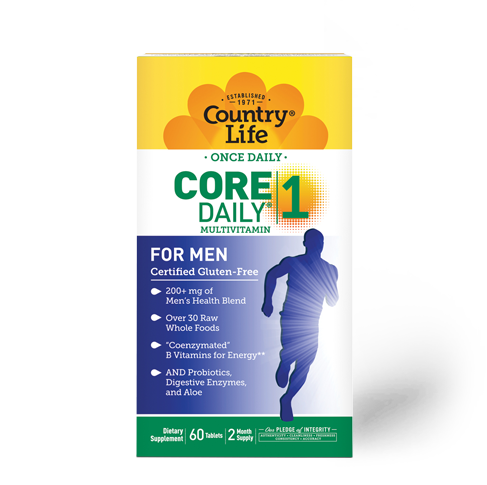
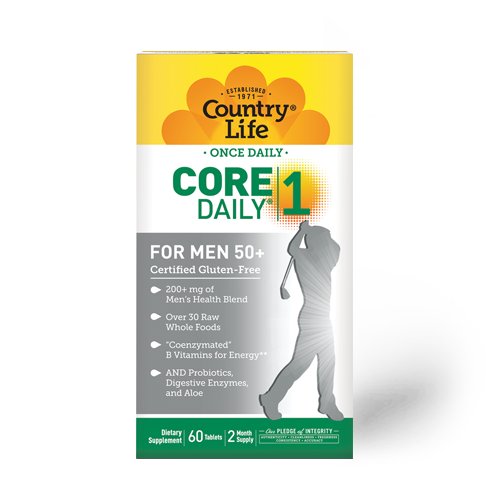
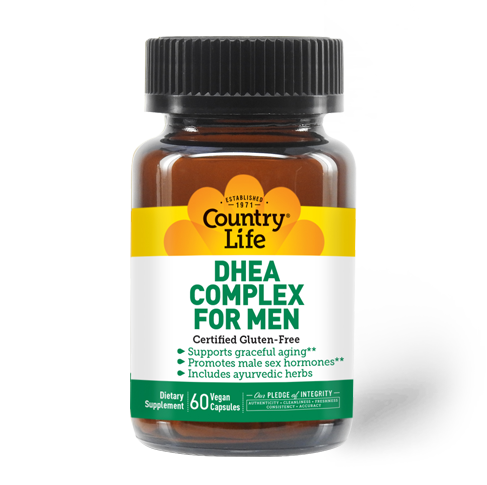
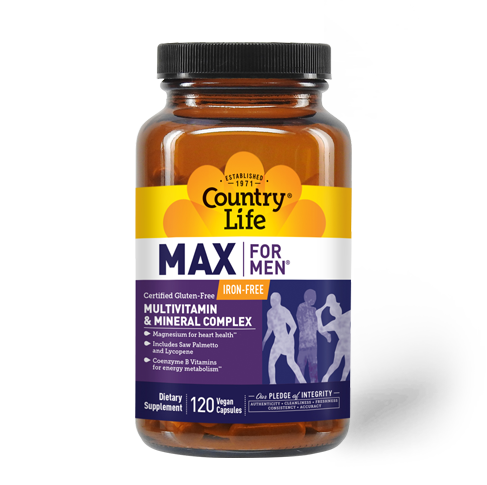
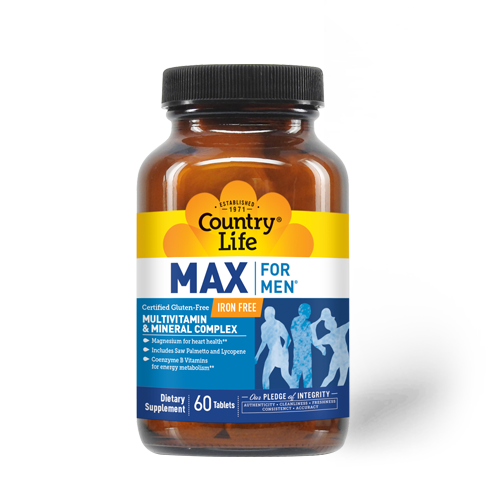
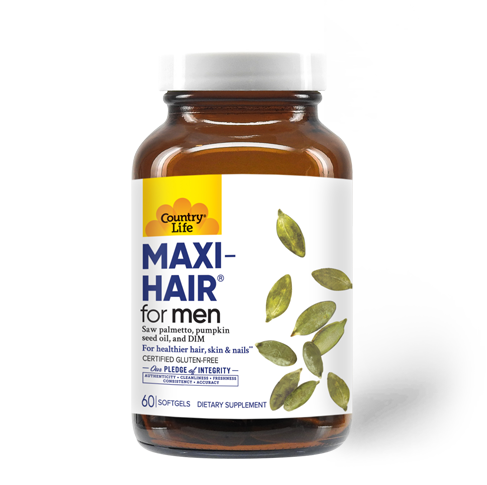
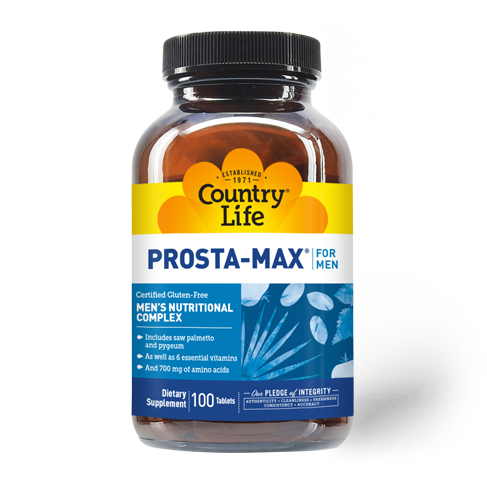
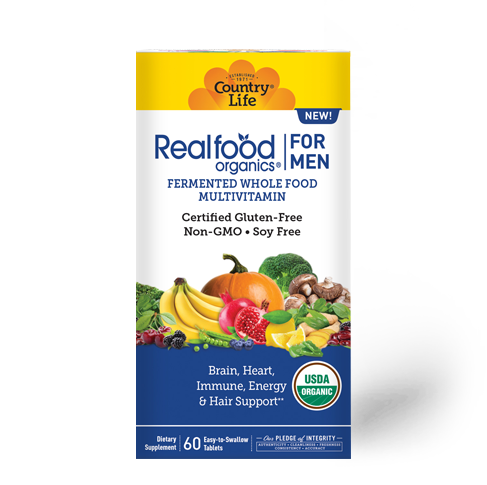










Share:
How To Read Supplement Labels: A Consumer’s Quick Guide
7 Must-Have Summer Vitamins & Supplements